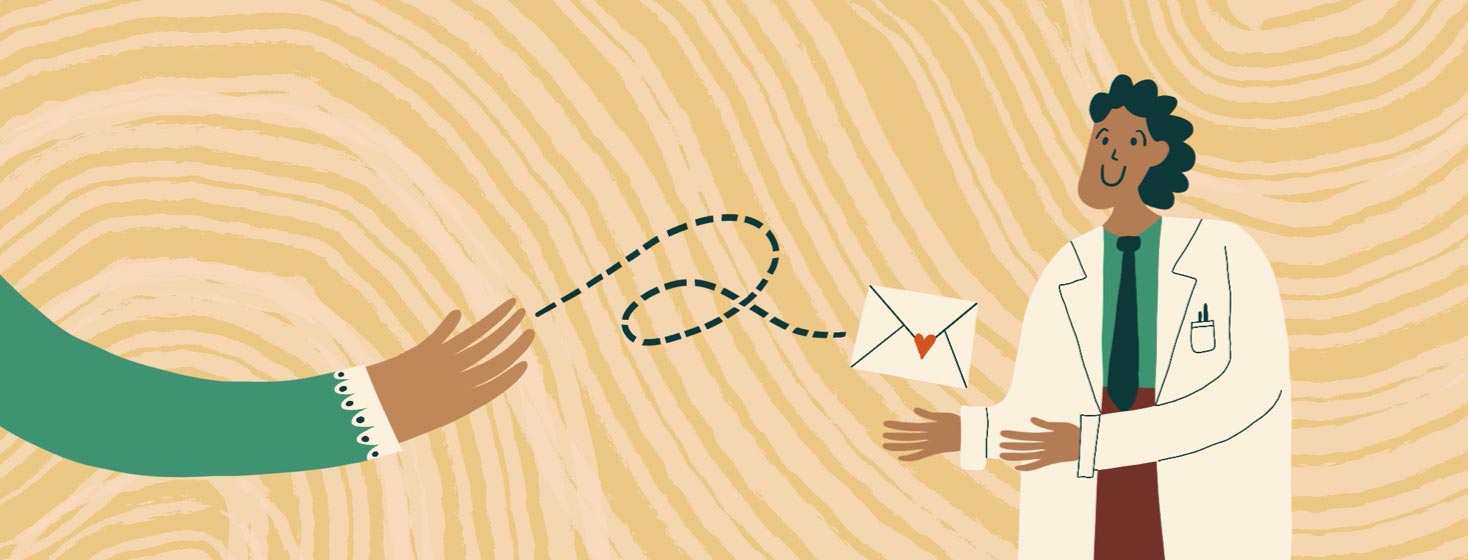Dear Doctor
Dear Doctor,
You are a very important person with regards to my COPD health as well as my whole life with COPD.
Different kinds of doctors
You might be a general practitioner (GP), an internal medicine (IM) doctor, or a lung specialist who is a pulmonologist. Some people like myself might see a general physician as well as a pulmonologist who specializes in our COPD care.
To my general physician: your patients rely on you for so much. Because of the many patients you see, the number of diagnoses that you make, and the many health issues that you treat, you deserve my recognition. You see your patients either face to face or online. Modern technology is amazing! You are on call in the emergency department as well as the clinic.
Doctor, when you take care of the whole me, it would be easy for me to dominate your time with my shortness of breath, coughing, headaches, back pain, constipation, indigestion, sore foot, sore throat - and who knows, it might be a day with a sore everything.
Valuing time
I hope that you all understand what I’m saying. On some days, I might have a whole body that can be revolting against me. Can you imagine how much time my whole body would need? Yet, maybe on this day, it’s only my shortness of breath.
It’s important for me to value my doctor’s time because there are other people needing to see him/her as well. Also, some of those health issues that I mentioned may be best treated by my general physician and maybe even my orthopedic doctor.
Be sure you prepare for your appointments. Take an updated medication list and family history summary at the very least.
After my diagnosis
One of the hardest things for me was that first appointment after my COPD diagnosis. It felt like I landed on a different planet. Shortness of breath, fatigue, weakness, coughing, dizziness, and spitting out mucus were my main concerns. I saw my hometown doctor for this appointment.
My GP and I always had so much to talk about. He had scheduled my appointment with National Jewish Medical Center for my diagnosis. At my next appointment with him, I just walked in and said “I have COPD". He gave me a small smile and said “I know”.
I don’t remember much after that. I was numb - even my brain was numb. We moved soon after to my husband's hometown. COPD came about 4-5 years after I quit smoking. I had been diagnosed with exercise-induced asthma prior to that.
Why one person finds out a year after quitting smoking and another finds out 4 years later likely depends on their overall health and possibly their tolerance for illnesses. Those who smoke can get COPD at any time.
To my pulmonologist
To my pulmonologist, I’m so grateful that you travel to my smaller town. Yes, I do come to you if you are wanting more testing or to do a procedure. It’s wonderful that you are able to monitor my sleep apnea as well.
You are the one who takes care of my lungs, the one who takes care of my COPD. My pulmonologist also has an interest in me being able to walk the length of a football field. He wonders if I'm taking the medications and vitamins I should be.
Slowing the progression
Will it go away? No. COPD is a progressive disease. Our goal should be to help slow the progression of our disease. This can be done by quitting smoking and avoiding others who smoke. No one should ever be able to smoke in your house. Exercise, nutritional health, taking medications as prescribed (do not take anything without having it approved by your doctor), taking oxygen as prescribed, seeing your doctor regularly, and getting sleep can all help slow COPD's progression.
I hope you are getting along well with your doctors!
Do you have a COPD doctor story? Click the button below to share with our community!

Join the conversation